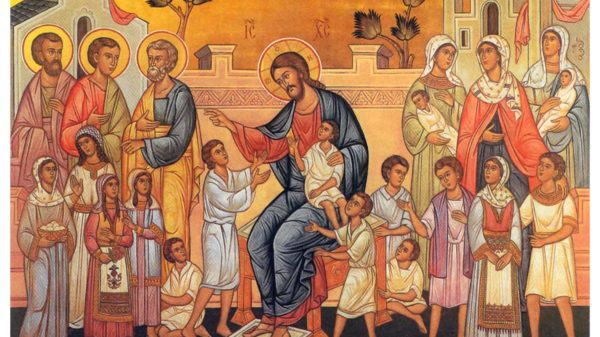AKA SCA Sir Sten Halverson, Baron
1995
Knights wearing patches over one eye to serve a vow to their ladies, Sir William Marmion and his golden helm; the Battle of the Thirty; Ulrich von Lichtenstein, dressed as venus, breaking three hundred lances; John the Good of France surrendering himself to the English because his honor bound him to so act; and of the tournaments “in the style of…”–Romance, the striving for the romantic ethic, had a powerful role in the Middle Ages. The men and women within a certain class threw themselves at an ideal in way rarely seen in history. I call that ideal “chivalry” (Steen’s quote removed here) and hold it distinct from what was performed in the face of reality.
When William Marshal pursued glory over gain, losing his horse in the process, and was mocked and chided by the Count d’Eu, his patron, he learned the lesson of compromise. His career, in its success, unfolded from that lesson, blending romance with reality in a way that made him a model for those generations who followed even as he fell short of the ideal for which he strove. We study him as an example of what a man might achieve, but we will fail to understand him or his time if we exclude or downplay that which he falls short of.
Dr. Keen, an often cited authority on chivalry, refers to himself as a “social historian,” which I believe marks a careful distinction. He has set out in his book Chivalry to describe the compromise rather than the ideal of chivalry; the romances, and even the how-to manuals, must be of interest to him only in how they affected real behavior. But that thing he confesses to love in the very last line of the book are the virtues he describes in his last paragraph–the same virtues that have endured for more than a thousand years–“is something from which it is not easy to withhold respect.” It is not the compromise, but the ideal, the romantic ethic, the myth (as he refers to it in chapter 6), that drove the chivalric class in the society he has studied. Dr. Keen’s is a book of chivalry in practice. An historian of ideas might write a complimentary companion–Chivalry in Theory–though a stronger case can be made that the writers of the romances have long filled that role, offering their poetry to balance the scholar’s prose.
A romantic ethic such as chivalry is given by poetry an enduring life, from its rough beginnings in Beowulf and the Song of Roland, through de Troyes and Eschenbach, to Malory and Cervantes, and even on through the much-abused Victorians. Through its long life, such a poetic ideal not only guides and informs its enactors, but is shaped and changed itself through the actions of those who pursue it–(like) two mirrors, face to face, reflecting back again each change what each produces in the other. But through whatever changes occur, the core of what I call the romance of chivalry–loyalty, generosity, bearing, courtesy–can be seen as far back as Beowulf, and survives the nineteenth century to us in the present. That is its life.
In the SCA, we cannot simply be medieval re-enactors. Not only would that exclude those of us who think in poetry rather than in prose, but it is flat impossible. We can strive for individual authenticity in appearance and accoutrement, and I count that a right thing; but rigorously authentic behavior is a fantasy. Even if we could agree on whether our outlook should be that of a 14th century Burgundian or a 12 th century Angevin, we would still have hordes of Vikings, Cavaliers, Samauri, Carthaginians, and bunny-fur barbarians. And even if we allow each their “authentic behavior,” somehow shoe-horning in the odds and ends, suffering the ensuing chaos, there remains the question of the common culture that will allow us to function. We have rulers chosen through combat two or three times per year, orders of peerage called “Pelicans” and “Laurels,” a grab bag of traditions, awards, ceremonies, and no church. Authentic behavior would be (supposing a European background) to treat it all as though you had been dropped into the court of the Emperor of China. But we don’t, and we shouldn’t.
The solution is to face the mirror of romance against our odd reality, and so allow each of us to find our own compromise with our own ideal. The trick, I believe, is in understanding that our romance includes to a great part the reality, the authenticity, of the Middle Ages; the whole of it has become a part of our romance. As we each strive for our romantic ethic, our failing, our compromise with others around us, will give us the form for our common behavior. That will be our chivalry in practice, as our ethic will remain our chivalry in theory.
On a scale of one to ten, I count the ideal, the romantic ethic, as a ten; and authenticity as a nine. Authenticity’s great value for me lies in the enormous part it plays in our romantic vision. The more meat and bone of reality we have, the closer we come to the form of our ideal. However, it can equally be argued that the reality is all that matters, and that only from it will the beauty of romance arise. There can, and should be, contention between these views, but each side must acknowledge the power and place of its opposite. We should accord the courtesy to each other that we each hold deeply held views, and recognize that our common foes are ignorance and indifference–those who care nothing for ideal or reality.
Good Rhys, I find myself in agreement over most of your definition of chivalry; whatever points of disagreement we have make only for good discussion. I applaud you as an “authenticity mavin” against whom I might put my failings. But I would counsel you against dismissing our modern romance as clap-trap. There are many, many of us who are striving for Lancelot and the enduring life of the romances, as many in the Middle Ages likewise strove. Romance and authenticity are complimentary and in the end each necessary for us in the SCA. In as much as I need a Rhys to caution me against becoming a Conanesque fantastic, a Rhys needs a Sten lest he become no more than a ghost walking in dead men’s steps.












